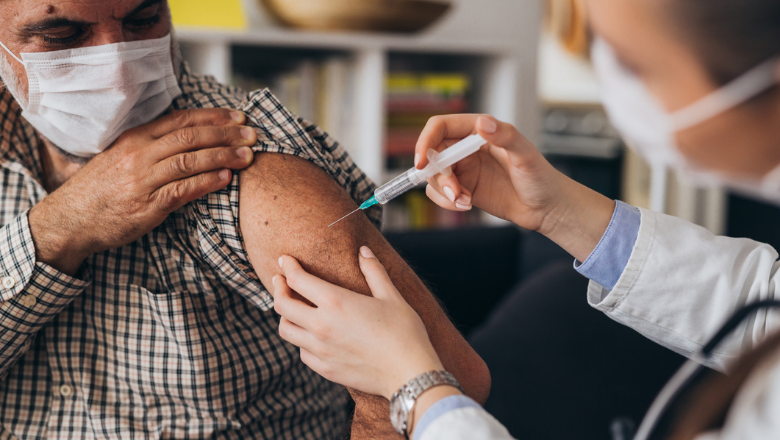The prioritisation of patients with severe mental illness in the UK reflects the emphasis that the UK psychiatric community, led by the Royal College of Psychiatrists, has always placed on the parity between mental and physical health.
Professor Carmine Pariante, Professor of Biological Psychiatry at the Institute of Psychiatry, Psychology & Neuroscience (IoPPN), King's College London, one of the authors and member of Immuno-NeuroPsychiatry Thematic Working Group of the ECN
17 February 2021
UK only one of four European countries to prioritise severe mental illness in COVID vaccine strategy
A survey by the neuroscience association European College for Neuropsychopharmacology (ECNP) has found that the UK is one of only four European countries out of 20 (together with Netherlands, Germany and Denmark) to prioritise COVID vaccinations for individuals with severe mental illness, despite a wealth of scientific evidence showing that these patients are amongst the most at risk.

Up to one person in 20 in Europe will suffer from a severe mental health problem and these patients are at greater risk from COVID-19 – research has shown that they are 65% more likely to catch COVID-19, and up to twice as likely to die from the disease.
He added, ‘However, in the context of a vaccination programme, this parity becomes even more poignant as it recognises that mental disorders do not only affect the brain but in fact have profound effects on the body that are comparable to those of the most severe medical conditions, and especially metabolic and cardiovascular conditions.’
The authors reviewed vaccine deployment plans and national vaccination policies in 20 countries and found the majority did not make any mention of mental health in their vaccination priority guidance.
Published today in Lancet Psychiatry, the authors call for the European Union and national health authorities to take concerted action to protect these vulnerable patients.
Professor Pariante continues: ‘These effects on the body are partly explainable by the more adverse psychosocial and lifestyle circumstances that often characterise people with mental disorders, but also point to biological mechanisms, including, most relevantly in this case, immune mechanisms, that are abnormal in people with mental disorders.’
Altogether, this evidence really demonstrates that there is no separation between brain, mind and body, and no distinction between mental and physical health.
Professor Carmine Pariante, Professor of Biological Psychiatry at the Institute of Psychiatry, Psychology & Neuroscience (IoPPN), King's College London, one of the authors and member of Immuno-NeuroPsychiatry Thematic Working Group of the ECN
Speaking for the mental health patient community, Global Alliance of Mental Illness Advocacy Networks-Europe (GAMIAN-Europe), President Hilkka Kärkkäinen said;
“Society needs to prioritise at-risk groups, but it is dispiriting to see that even during the pandemic, mental health is an afterthought – if that – for many countries. The scientific evidence is clear that COVID and the resulting lockdown is causing significant harm to people with serious mental health problems, but very few countries are addressing this. This needs to change”.
The paper recommends the explicit inclusion of inpatients and outpatients with severe mental illness in medical priority groups for COVID-19 vaccination, the participation of patient- and family organisational in developing vaccination plans, and the provision of vaccination education to patients. The paper was developed in collaboration with the Europe’s main clinical and patient mental health organisations.
- European College of Neuropsychopharmacology (ECNP)
- European Psychiatric Association (EPA)
- European Federation of Associations of Families of People with Mental Illness (EUFAMI)
- Global Alliance of Mental Illness Advocacy Networks-Europe (GAMIAN-Europe)
- European Union of Medical Specialists Section of Psychiatry (UEMS-Psychiatry).
‘Severe mental illness and European COVID-19 vaccination strategies’ De Picker et al is published in Lancet Psychiatry https://doi.org/10.1016/S2215-0366(21)00046-8
Contact
For further information please contact Louise Pratt, Head of Communications, Institute of Psychiatry, Psychology & Neuroscience, King’s College London louise.a.pratt@kcl.ac.uk / +44 7850 919020

